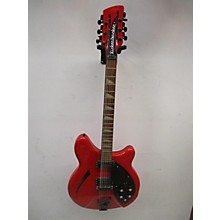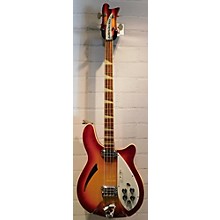
The Hollies were also well known for their Vox Phantom XII. Epstein managed to negotiate a 360/12 for Gerry Marsden, front man of the Pacemakers during that original meeting on February ‘64. Harrison’s newly found sound caused waves in pop music, as heard on numbers by British groups such as the Searchers, whose ‘When You Walk In The Room’ centred around a jolly country riff executed on a 12-string guitar. Further outings encompassed ‘What You’re Doing’ on Beatles For Sale, the brilliantly jangly ‘Ticket To Ride’ on Help! As well as ‘I Call Your Name’ from the Long Tall Sally EP. ‘I Should Have Know Better’ and ‘Any Time At All’ were more typical Merseybeat numbers, but did feature some restrained 12-string soloing.
#Guitar center rickenbacker 325 movie
He recorded the B-side ‘You Can’t Do That’ on his 21 st birthday and went on to use it on the Hard Day’s Night movie soundtrack, including the title track itself with its magnificent, abstract opening chord, simple solo and arpeggio outro. On return to England, Harrison laid down his first jangly riffs with the new guitar back at EMI Studios at Abbey Road. Rickenbacker head woodworker Dick Burke came up with the idea the previous year, routing the second set of six string tuners 90⁰ to the first. Apart from these obvious attractions, Harrison was particularly taken with the innovative headstock that arranged the metal tuning pegs in an easy-to-use system: “Straight away I liked that you knew exactly which string was which”. The deluxe features of the brand new large bodied double bound semi-acoustic included its sharp horns, original flat metal tailpiece, slash sound hole, triangle fret inlays and a stunningly beautiful ‘fireglow’ sunburst finish.

So the new Rickenbacker 360/12 guitar was carried across Central Park to the bedridden Beatle, where he immediately fell in love with it. He was suffering with the flu in his hotel room back at the Plaza. Of course, John Lennon had already been playing his trusty black 325 Ricky for a few years, but Rickenbacker were hoping that further exposure would do wonders for sales.Īnd yet, George Harrison never made it to the expo. Hall had arranged a little expo at his hotel suite comprising amplifiers, echo units and some other new products including the company’s brand new prototype electric 12-string, and inviting along such a hot new group as The Beatles on the verge of their U.S. The sender, manager Brian Epstein and the ‘boys’ he’s referring to are no other than four Liverpool lads who go by the names of John, Paul, George and Ringo. It’s a winter’s afternoon in New York City and a young English music entrepreneur staying at the Plaza Hotel has left a message: “Mr Hall – Will be here to see you with the boys between 4.00 and 4.30 PM today.” The recipient is a Mr Francis C.

Days That Changed Rock: Rickenbacker Visit The BeatlesĨ th February 1964: A telephone call has just been taken at the Savoy Hilton, Manhattan.


 0 kommentar(er)
0 kommentar(er)
